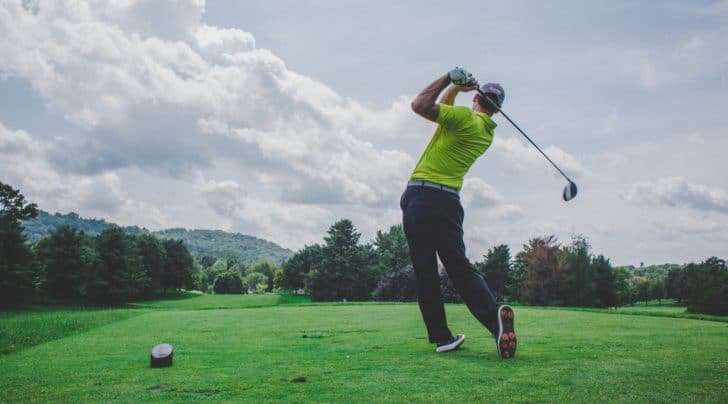
An ACL injury is commonplace. Most ACL tears occur due to non-contact injuries. Players most often tear their ACL when turning, pivoting, or twisting.
- What is the ACL?
- Why does it tear so often?
- Are ACL tears more common in women?
These questions keep popping up.
After the initial injury and visit to an urgent care center, you will start to think up a list of questions. You will immediately assume that ACL surgery is necessary. It might not be. You might think that it prevents arthritis from occurring later in life… it might not.
- Do I need ACL surgery?
- Does ACL surgery prevent knee arthritis?
The videos below are answers to the questions above, and those that you should ask about the ACL and the management of ACL tears. These are the questions that the Sports Medicine community is trying to answer with our ongoing research. These are ACL related questions that you have to think about before signing up for an ACL reconstruction.
In these videos, Orthopedic Surgery experts from around the US will address the most common question you may have, or should have about an ACL injury.
Future videos will address the particulars about ACL surgery itself.
First up is Stephen Thompson, MD. Following him will be Brian Waterman, MD. Both of these Orthopedic Surgeons are highly regarded in the academic sports medicine arena.
Located below the video is a tab that says “15” videos… if you click that tab you will see all 15 questions that each surgeon will answer. Each answer is approximately 1-2 minutes. So you can choose the watch all the ACL injury-related videos, or pick and choose to listen to only the questions you have about your ACL tear.
And now, Brian Waterman, MD.


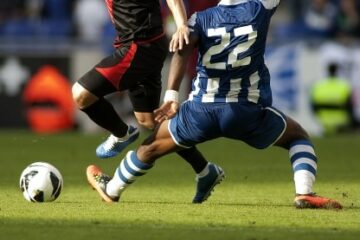
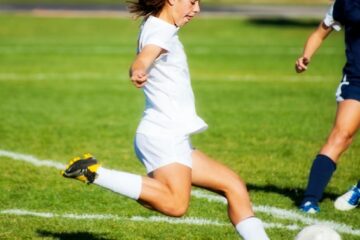
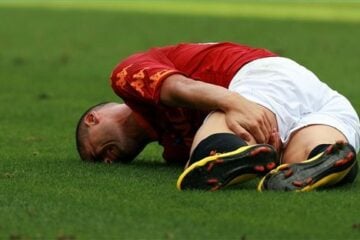
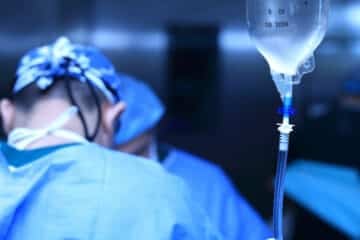








I came across your page on the internet and want to see what you think. I am a 48 year old female. I’ve been a nurse for 25 years in the hospital. I am about 30lbs overweight. I have had bilateral knee pain for several years now. The right knee was scoped in 2015, the left knee was scoped in 2007, then 2008. Of course, now I have arthritis in both. I am scheduled for a right partial knee replacement on 9/14/. My right knee has had severe pain in it since May 2020. I had an MRI 8/7/2020 and the results are below:
Study Result
MRI RIGHT KNEE WITHOUT CONTRAST, 8/7/2020 8:52 AM
INDICATION: Knee trauma, internal derangement suspected, neg xray or avulsion fracture (Age => 1y) \ pain \ M17.0 Primary osteoarthritis of both knees.
ADDITIONAL HISTORY FROM MEDICAL RECORD: Progressive right knee pain, medial compartment – one prior scope several years ago; Limping/swelling – recent steroid injection did not help; burning pain on the medial aspect of the knee
COMPARISON: Multiple prior radiographs including most recent dated 5/14/2020. Most recent MRI dated 1/31/2017
TECHNIQUE: Multi-planar, multi-sequence MR imaging of the right knee was performed without contrast.
FINDINGS:
. Bone: Intense marrow edema in the femur and tibia adjacent to the high-grade chondrosis in the medial compartment without discrete fracture line.
. Cruciate ligaments: Full-thickness, full-width tear of the anterior cruciate ligament. Intact posterior cruciate ligament.
. Collateral ligaments: Intact. The medial collateral ligament is bowed medially secondary to meniscal extrusion and degenerative changes with adjacent synovitis.
. Medial meniscus: Postsurgical changes of partial medial meniscectomy. Horizontal tear of the medial meniscus with extrusion medially (series 3, image 9 through 11). Parameniscal cysts posterior to the posterior horn.
. Lateral meniscus: Intact.
. Medial compartment: Diffuse high-grade chondrosis with adjacent intense marrow edema.
. Lateral compartment: No deep chondral defect.
. Patellofemoral compartment: No deep chondral defect.
. Extensor mechanism: Intact.
. Joint: No malalignment. Moderate effusion with synovitis.
. Soft tissues: Small Baker cyst.
CONCLUSION:
1. Complete ACL tear.
2. Prior meniscectomy with horizontal tear of the medial meniscus with extrusion.
3. Diffuse high-grade chondrosis of the medial compartment with intense femoral and tibial marrow edema concerning for developing insufficiency fracture without discrete fracture at this time.
4. Moderate joint effusion with synovitis.
My three questions are below, please consider answering them for me.
1. I have read that you shouldn’t get a partial knee replacement if the ACL is torn. Can they both be fixed at the same time?
2. How does the above combo surgery affect the recovery time?
3. Can the meniscus be repaired during the partial knee replacement, or should it be left to heal on its own?
Thank you so much, Tracy Shaw
Hi Tracey …
Great questions.
1. Yes, the ACL can be reconstructed at the time of a partial replacement. Having a partial without addressing the ACL can lead to instability after the partial.
2. It will not dramatically increase your recovery time.
3.We remove the meniscus when we do the partial. That allows us to place the component on the tibial side of the knee.
Good luck
You are correct… A partial knee replacement in a knee without an ACL runs the risk of being unstable. We remove the remnants of the medial meniscus when we perform a partial medial replacement.
Hey Doc, I came across your page and it has been very helpful so far. I am a 16-year-old male and I play football and basketball. I tore my left ACL, as well as a Grade 1 MCL tear, about a month ago (November 2020) and am scheduled for ACL Reconstructive surgery in about two weeks (end of Dec 2020). My doctor has stressed waiting for the swelling to subside and my full range of motion to return (I’m probably 95% there). I’m able to walk and do most daily activities without my knee feeling too unstable. I’ve been attending PT sessions to get a head start on my hips, core, and leg strength as well as balance and agility. I also am doing exercises to help with ROM and swelling. My doctor recommends a hamstring graft over a patella graft and said that patellar grafts can have higher chances of arthritis in the knee long term. From what I understand, hamstring grafts would require more work in PT to re-strengthen the hamstring. With that being said, I’m willing to put in the work in PT, but what is your opinion on this?
I have one more question. I really want to come back faster and stronger than before the injury and I understand that is not easy. What sort of exercises can I do before and after surgery to strengthen my leg muscles (quads, hamstrings, calfs, etc.) that don’t involve stressing my knee? Is it realistic to think that in 6-8 months post-op my leg muscles can be stronger than they are now? How often do athletes return from such an injury significantly faster/more explosive? I’m willing to put in the work but I also don’t want to get my hopes up.
HI..
The data shows that 55-60% of elite-level athletes return to their prior level of performance. For others, they might achieve higher levels if they weren’t previously performing at the highest level they could have achieved pre-injury. Hamstring grafts can produce weakness and a loss of strength. That can be permanent. This doesn’t happen in everyone, but it does happen. A patella tendon graft does not produce arthritis. ACL tears alone cause a significant increase in the risk of developing arthritis in the future. If there is a meniscus tear, then the risk of OA is even higher. The type of graft used doesn’t correlate with a further increase in the risk of developing osteoarthritis.